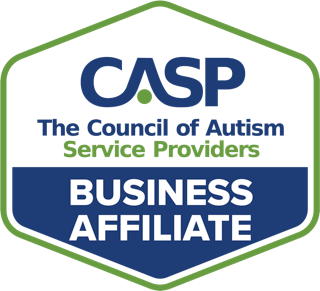The “gold standard” for effective treatment for individuals with autism has always been Applied Behavior Analysis (ABA).
However, as ABA services are increasingly sought after and provided to large groups of individuals, new clinicians are being trained and certified at a rapid pace.
Because of this, a true “standard” for these ABA programs is difficult to define in the marketplace.
Where the Difficulty Lies
A quick scroll through social media sites can highlight complaints from both consumers and clinicians regarding:
- poor programming
- lack of evidence-based treatment plans
- ineffective data collection
Part of this difficulty lies in the individualization of programs as ABA programs are typically designed for each individual, which results in certified and credentialed providers not developing standards of care across the board rather than the individual client.
While many individual practitioners are experiencing success at their practice, providers and funders often run into issues when scaling practices toward large populations and across many practitioners to obtain (effective) outcomes expected by stakeholders and clinicians.
Enormous challenges faced by clinical organizations as they grow and move into community-based integrated service models include:
- ongoing supervision and training of staff
- standard documentation practices
- consistency of clinical interventions and outcomes
Though challenging, there are methods to smooth this transition.
Setting up for Success
As a behavioral health provider across many states, we maintain large waiting lists for clients and are constantly hiring new clinicians at a rapid pace to keep up.
One of the most difficult tasks we’ve experienced is maintaining appropriate clinical and operational checks and balances while providing services to families who direly need them.
This need for effective monitoring and supervision of clinical programs is essential in assuring the ABA programs we provide remain the “gold standard”.
Therefore, it is a priority to hold all our clinical programs to the high standards that ABA has demonstrated and knows so well.
At Aveanna, creating and maintaining organizational quality indicators has been a priority over the last 3 years.
As part of this initiative (and given the larger size of our programs), it has been imperative to have a partner electronic platform that allows us to continue providing excellent ABA case management services while reducing time costs related to:
- supervision and training
- information storage and data collection
- management at the individual and aggregate levels
RethinkBH, a division of RethinkFirst, has been this partner for Aveanna.
The Rethink platform has provided us with tools to standardize our clinical documentation and data management while allowing an efficient way to access and review all the clients’ records.
With these features in place, we have been able to identify and monitor clinical quality indicators that will give us the opportunity to standardize and shape the clinical skills of our staff to reach the services and outcomes that we expect for all the individuals we serve.
As an example and a baseline point, we identified the following essential quality indicators that will be at the core of each and all programs offered.
These quality indicators are the backbone of our standard performance expectations and will continue to pave the road for further development of all our clinical staff and the achievement of consistently valuable treatment outcomes.
Key Quality Indicators:
- Individual goals clearly match the assessments
- Goals are measurable
- Data collection systems selected match the stated goals
- Lesson plans for each goal are completed
- Positive Behavior Support plan is written and in place
- Graphs for each and all goals are up to date and complete
- Graphs reflect changes in interventions as needed
- Intervention protocols are evidence-based
- Follows up with supervision round recommendations
Thanks to RethinkBH, we can audit the program integrity remotely to assure compliance with basic clinical standards.
Our goal with standardizing and reverse engineering clinical outcomes at the clinician level is twofold:
- Create a basic standard of care while allowing the clinician to individualize treatment
- Work toward creating a baseline for measuring large population aggregate results in the future
When we can finalize and control the variables for treatment implementation across our national program, we will then move toward aggregating the data from Rethink on the children’s plans and measure full programmatic integrity.
This data will then drive decisions from the child level all the way up through executive decisions.
With Rethink as a partner in data collection and treatment integrity, the collected data will allow us in the future to change our clinical and organizational structure that have direct and meaningful impacts on client outcomes across locations.
RethinkBH provides an intuitive and comprehensive solution to scale your ABA business and ensure client success.
Our one-stop-shop platform offers both Clinical and Practice Management tools along with RBT Training, VB-MAPP licenses, and over 1500 resources/materials as curriculum pieces.
Schedule a demo today at your convenience!










